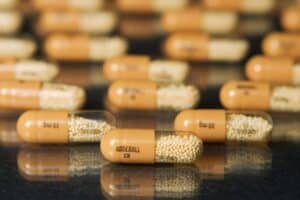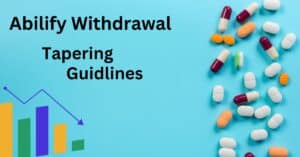
Buy Adderall Online – Fast & Secure Ordering
Buy Adderall Online Safely and Conveniently Are you searching for a trustworthy source to buy Adderall online? You’ve come to the right place. At CureCart,…
+1 (341) 208-3081
No products in the cart.

When it comes to enhancing focus, boosting energy, and staying alert, two substances generally come to mind: Adderall and caffeine. Both are powerful stimulants that can increase attention and productivity. However, while they possess some similarities, combining them can have complex and possibly harmful effects on your body. Understanding the interaction between Adderall and caffeine is necessary for anyone considering using these stimulants together, whether for academic performance, work productivity, or daily energy needs.
In this detailed guide, we’ll analyze what happens when you mix Adderall with coffee, how their effects differ, the possible hazards associated, and whether using them together is safe.
Table of Contents
ToggleAdderall is a prescription medication that mainly treats Attention Deficit Hyperactivity Disorder (ADHD) and narcolepsy. It’s a central nervous system stimulant composed of mixed amphetamine salts, which work by increasing the levels of certain neurotransmitters dopamine and norepinephrine in the brain. These chemicals play a vital role in maintaining focus, motivation, and alertness.
For people with ADHD, Adderall helps improve attention spans, reduce hyperactivity, and control impulsive behaviors. When used correctly under medical supervision, Adderall can be highly effective for managing ADHD symptoms and improving cognitive function.
However, since Adderall is a rich stimulant, it comes with potential side effects such as:
Adderall is classified as a Schedule II controlled substance in the U.S. due to its potential for misuse and addiction.
Caffeine is the most widely consumed psychoactive substance in the world, naturally found in coffee, tea, chocolate, and energy drinks. It works by blocking adenosine receptors in the brain. Adenosine is a neurotransmitter responsible for promoting relaxation and sleepiness. By blocking these receptors, caffeine increases alertness, reduces fatigue, and enhances mental performance. Unlike Adderall, caffeine is not a prescription medicine and is generally viewed as harmless for most individuals when consumed in small amounts. Typical caffeine side effects include:
Though it’s still a strong stimulant that can affect mood, focus, and energy levels, caffeine’s effects are typically less serious and less persistent than Adderall’s.

While both Adderall and caffeine are central nervous system stimulants that improve focus and alertness, they function very differently and have distinct effects on the body.
| Feature | Adderall | Caffeine |
| Type | Prescription stimulant | Natural stimulant |
| Common Uses | ADHD, narcolepsy treatment | Boosts alertness, reduces fatigue |
| Mechanism | Increases dopamine and norepinephrine | Blocks adenosine receptors |
| Duration | 4-6 hours (immediate release), up to 12 hours (extended-release) | 3-5 hours |
| Side Effects | Anxiety, insomnia, increased heart rate, appetite suppression | Jitters, insomnia, increased heart rate |
| Dependency Risk | High (potential for misuse and addiction) | Low to moderate (habit-forming for some individuals) |
Adderall offers a stronger and more targeted effect on focus and productivity, especially for individuals with ADHD. In contrast, caffeine provides a quick, mild energy boost that’s easily accessible and socially acceptable.
While it might seem tempting to combine Adderall and caffeine for a supercharged boost in focus and energy, doing so can pose significant risks. Since both can increase feelings of nervousness, using them together could amplify these symptoms. Read more on Adderall and anxiety here.
Mixing Adderall with coffee might increase the probability of having challenging side effects, such as:
In some controlled situations, small amounts of caffeine may help enhance focus and energy when taking Adderall. For example, someone prescribed Adderall who needs an extra boost of alertness during a particularly demanding task might benefit from a moderate amount of caffeine.
Potential benefits of combining Adderall and caffeine include:
However, these potential benefits should always be weighed against the risks, and any combination should be done under a healthcare provider’s supervision.
The risks of using Adderall and caffeine together often outweigh any potential benefits, particularly if the consumption of caffeine is high or unmanaged. The combination can lead to serious health concerns such as:

If you’re prescribed Adderall and still want to consume caffeine, it’s essential to take precautions to minimize potential risks. Here are some guidelines to follow:
Final Thoughts: Should You Mix Adderall and Caffeine?
While both Adderall and caffeine can improve focus, energy, and alertness, combining them can lead to severe side effects and health risks. The overstimulation caused by using both substances simultaneously can disrupt sleep, increase anxiety, and strain your cardiovascular system. If you’re prescribed Adderall, it’s best to consult with your healthcare provider before consuming any caffeine. They can help you determine safe levels of caffeine intake and monitor for any adverse reactions.
For more expert insights on managing ADHD, medication safety, and stimulant use, visit CureCart your trusted source for up-to-date health information.

Buy Adderall Online Safely and Conveniently Are you searching for a trustworthy source to buy Adderall online? You’ve come to the right place. At CureCart,…

Adderall is a well-known medication primarily prescribed for the treatment of Attention Deficit Hyperactivity Disorder (ADHD) and narcolepsy. It is known to improve focus, attention,…

When it comes to enhancing focus, boosting energy, and staying alert, two substances generally come to mind: Adderall and caffeine. Both are powerful stimulants that…

Adderall is a commonly prescribed medication for attention deficit hyperactivity disorder (ADHD) and narcolepsy. Adderall is Well-known for its capacity to improve concentration and energy,…

Adderall is a frequently used medicine, prescribed mostly to treat Attention Deficit Hyperactivity Disorder (ADHD) and narcolepsy. Although it helps control symptoms, concerns have been…

What is Abilify Withdrawal? The medicine prescribed for diseases including schizophrenia, bipolar illness, and severe depressive illness, Abilify (Aripiprazole) is an atypical antipsychotic medication For…
Awareness that health dependent upon habit that we control makes first generation